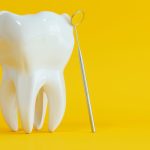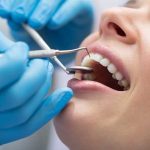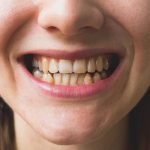Why Biting Down Causes Back Teeth Pain: Understanding the Causes and Solutions

Back teeth pain is a common dental problem that many people face at some point in their lives, and it can be quite unpleasant. One of the main causes of this type of pain is biting down, which can lead to discomfort, sensitivity, and even difficulty eating. However, understanding the reasons behind this issue and finding effective solutions can help you get relief and avoid further damage to your teeth. When you bite down, the force is distributed throughout your teeth and jaw. While your front teeth are designed for cutting and tearing food, your back teeth, also known as molars and premolars, are used for grinding and chewing. These teeth have multiple cusps and fissures that help break down food into smaller pieces. However, when you bite down too hard or too often, the pressure can cause these cusps and fissures to wear down or even crack, leading to pain and sensitivity. Additionally, if you have dental issues such as cavities or gum disease, biting down can exacerbate these problems and cause further discomfort.
Back teeth pain caused by biting down is a common dental problem that can be quite distressing. The pain is usually sharp and can be felt in the molars or premolars. The issue could be caused by a number of factors such as tooth decay, a cracked or broken tooth, grinding or clenching of teeth, or gum disease. When we bite down, the pressure is exerted on the teeth, and if there is a problem with any of the aforementioned factors, it can lead to pain. Ignoring the problem could lead to more serious dental issues, and therefore, it is important to understand the causes and solutions to the problem. Some of the solutions include visiting a dentist to diagnose the problem, getting a filling or crown, wearing a mouthguard to prevent grinding or clenching, and maintaining good oral hygiene.
Understanding the causes and solutions of back teeth pain caused by biting down is crucial for maintaining good oral health. Ignoring this issue can lead to severe dental problems, including gum disease, tooth decay, and even tooth loss. Some of the common causes of back teeth pain include tooth decay, gum disease, teeth grinding, and a misaligned bite. By identifying the underlying cause of the pain, dentists can recommend appropriate treatment options to alleviate the discomfort and prevent further damage. Treatment options may include dental fillings, root canal therapy, or orthodontic treatment. Therefore, it is essential to seek professional help and understand the causes and solutions of back teeth pain caused by biting down to ensure optimal oral health.
Anatomy of the Teeth and Jaw
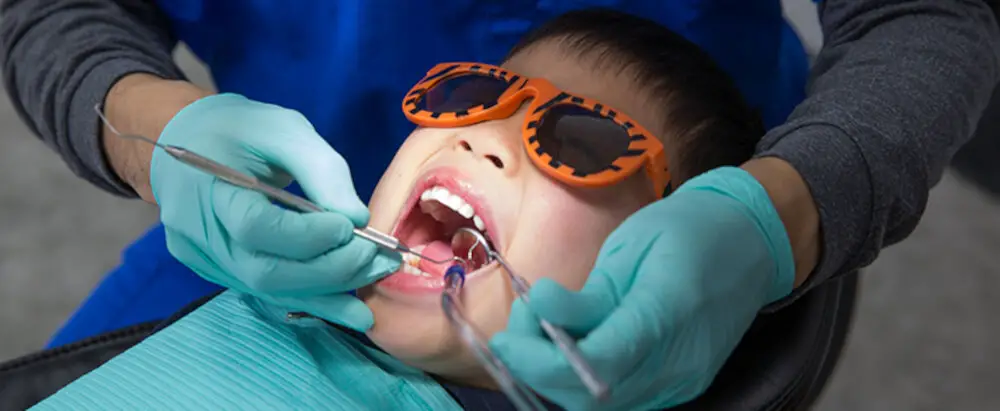
The anatomy of the teeth and jaw is a complex and fascinating subject that highlights the intricacies of the human body. The teeth are composed of three main layers: the enamel, dentin, and pulp. The enamel is the hard outer layer that protects the tooth from damage, while the dentin is a softer layer that provides cushioning and support. The pulp is the innermost layer and contains nerves and blood vessels that keep the tooth alive. The jaw bone supports the teeth and is responsible for their movement during chewing and speaking. It is essential to maintain good oral hygiene and regular dental checkups to keep the teeth and jaw healthy. When biting down causes back teeth pain, it can be due to several factors, including tooth decay, gum disease, or a misaligned bite. Tooth decay occurs when bacteria erode the enamel and dentin layers, leading to sensitivity and pain. Gum disease, on the other hand, affects the soft tissues around the teeth and can cause inflammation and discomfort. A misaligned bite occurs when the upper and lower teeth do not fit together correctly, causing strain on the jaw muscles and joints. Understanding the causes of back teeth pain is crucial in finding the appropriate solutions, which may include dental fillings, root canals, or orthodontic treatment to realign the teeth and bite.
Teeth and jaws are essential components of the human anatomy responsible for the mastication of food. The jaw contains the maxilla and mandible bones that house the teeth, and the joint that connects them is called the temporomandibular joint (TMJ). The teeth have different structures and functions, with the incisors being used for biting and cutting, canines for tearing and ripping, and molars for grinding and crushing. The enamel, dentin, and pulp are the three layers of a tooth, with the enamel being the outermost layer that protects the tooth from damage. The jaw muscles work together to generate the force needed for biting and chewing food, and any misalignment or damage to the teeth or jaw can cause pain and discomfort.
Biting down exerts pressure on the teeth and jaw, causing them to work together to crush and grind food. While this is a natural function of the mouth, excessive biting down can cause pain and discomfort in the back teeth and jaw. The constant pressure can wear down the enamel on the teeth, leading to sensitivity and pain. Additionally, the jaw muscles can become strained and overworked, resulting in muscle fatigue and pain. Proper dental hygiene, relaxation techniques, and wearing a mouthguard can all help alleviate the discomfort caused by excessive biting down.
Causes of Back Teeth Pain from Biting
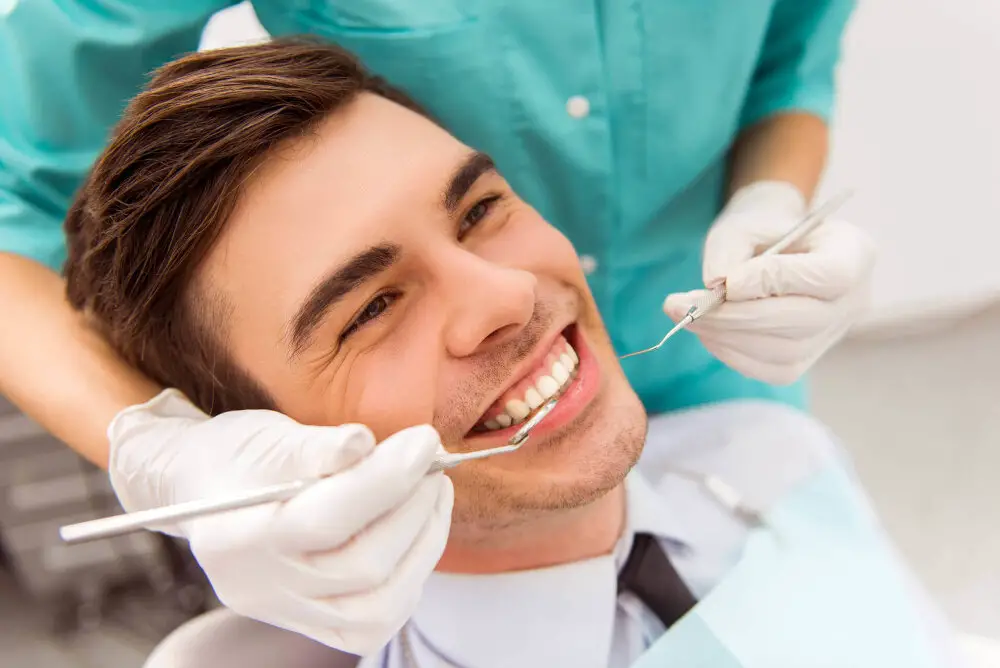
Back teeth pain from biting is a common dental problem that many people experience. The pain can be felt on the molars, premolars or wisdom teeth at the back of the mouth. The causes of this pain are varied, but the most common is a dental problem such as tooth decay, gum disease or a cracked tooth. Tooth decay is caused by the bacteria present in the mouth that breaks down the enamel of the tooth. The decay can reach the inner layer of the tooth, causing pain and sensitivity. Gum disease can also cause back teeth pain from biting as it affects the tissues that surround and support the teeth. The inflammation and infection of the gums can cause pain, swelling and tenderness, especially when biting down. A cracked tooth can also cause pain when biting down as it exposes the nerves inside the tooth, causing sensitivity and pain. Another cause of back teeth pain from biting is bruxism, which is the excessive grinding or clenching of the teeth. This condition can cause wear and tear on the teeth, leading to sensitivity and pain when biting down. It can also cause damage to the jaw joint, leading to temporomandibular joint disorder (TMD) which can also cause pain in the back teeth. Other causes of back teeth pain from biting include a misaligned bite, a dental abscess, or a sinus infection. It is important to seek dental treatment if you experience any pain or discomfort when biting down as it could be a sign of a serious dental problem. A dental professional can diagnose the cause of the pain and provide the appropriate treatment to relieve the discomfort and prevent further damage.
Dental conditions such as tooth decay, gum disease, and tooth abscess can cause discomfort and pain, especially when biting down. Tooth decay occurs when bacteria in the mouth produce acid that damages the enamel, leading to cavities. Gum disease, also known as periodontitis, is caused by plaque buildup on the teeth that can lead to inflammation and infection of the gums. A tooth abscess occurs when a bacterial infection forms in the tooth, causing swelling and pain. These conditions can be prevented by practicing good oral hygiene, such as brushing and flossing regularly, and visiting the dentist for regular check-ups and cleanings. Treatment options for these conditions include fillings, root canals, and antibiotics, depending on the severity of the condition.
Teeth grinding and clenching, clinically known as bruxism, is a common condition that affects millions of people worldwide. It is characterized by the involuntary grinding, gnashing, or clenching of teeth, usually during sleep or times of high stress. Bruxism can result in a range of dental problems, including tooth wear, chipped or cracked teeth, and jaw pain. Some of the most common causes of bruxism include stress, anxiety, sleep disorders, and misaligned teeth. Treatment for bruxism may involve the use of mouth guards or splints to prevent further damage to the teeth, as well as stress management techniques to address the underlying causes of the condition.
Misaligned bite or teeth, also known as malocclusion, is a common dental problem that occurs when the teeth are not properly aligned. This can lead to a range of issues, including difficulty chewing, speech problems, and even facial deformities. There are many possible causes of misaligned teeth, including genetics, thumb-sucking, and losing teeth prematurely. In some cases, misaligned teeth can be corrected with orthodontic treatment, such as braces or aligners, which gradually shift the teeth into their proper position. However, if left untreated, misaligned teeth can cause a range of dental problems, including tooth decay, gum disease, and jaw pain. Therefore, if you suspect that you have misaligned teeth, it is important to seek the advice of a qualified dentist or orthodontist to determine the best course of treatment for your individual needs.
Solutions for Back Teeth Pain from Biting
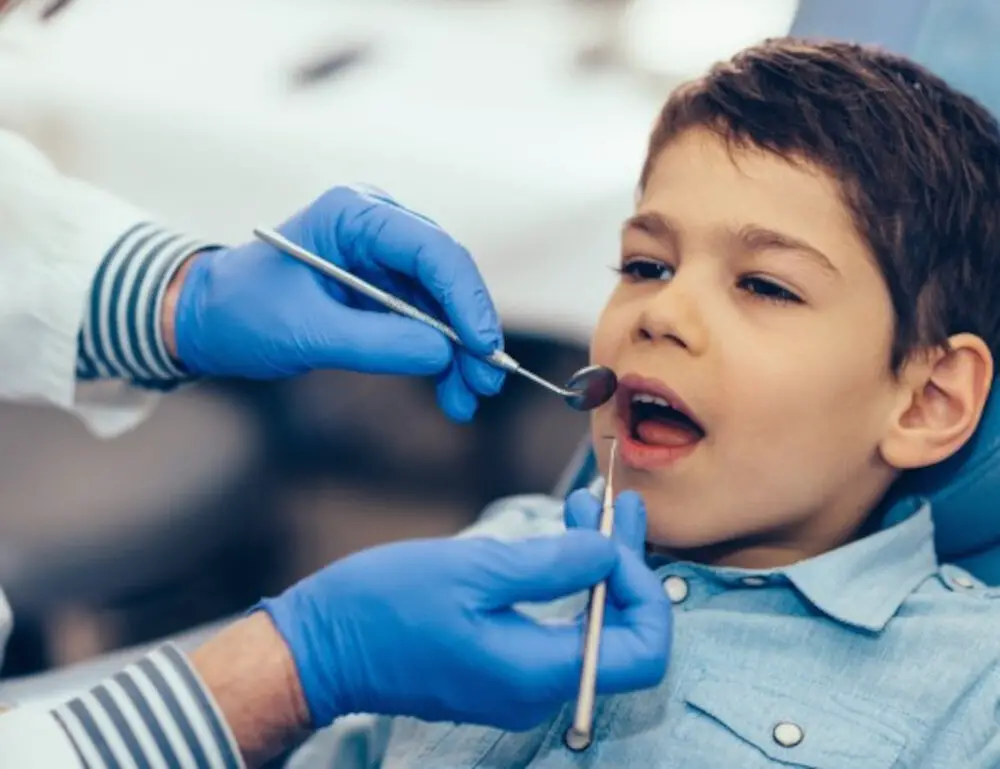
Back teeth pain from biting down can be a frustrating and uncomfortable experience. It can be caused by a variety of factors, including tooth decay, tooth grinding, and jaw misalignment. Fortunately, there are several solutions available to alleviate this pain and improve overall oral health. One solution is to visit a dentist for a thorough examination and treatment plan. A dentist can identify any underlying issues that may be causing the pain and recommend a course of action, such as fillings, crowns, or orthodontic treatment. In addition, they may suggest lifestyle changes, such as reducing sugar intake or wearing a nightguard to prevent grinding. Another solution for back teeth pain from biting is to practice good oral hygiene. This includes brushing and flossing regularly, as well as using mouthwash to kill bacteria and freshen breath. A healthy diet, rich in calcium and vitamin D, can also strengthen teeth and improve overall dental health. For those who grind their teeth, stress-reducing techniques such as meditation or exercise may also be beneficial. Overall, taking proactive steps to care for your teeth and seeking professional help as needed can help alleviate back teeth pain and promote a healthier smile.
Dental treatments such as fillings, root canals, and extractions are common procedures used to restore damaged or decayed teeth, relieve pain, and prevent further dental problems. Fillings, typically made of composite resin or amalgam, are used to repair small cavities and prevent further decay. Root canals are necessary when the pulp inside a tooth becomes infected or inflamed, and involves removing the infected tissue and filling the canal with a synthetic material. Extractions are performed when a tooth is severely damaged or decayed and cannot be saved, or in cases where there is overcrowding in the mouth. While these procedures may sound intimidating, they are typically performed with local anesthesia and are relatively quick and painless.
Night guards and bite splints are dental appliances that are commonly used to treat teeth grinding and clenching. Teeth grinding, also known as bruxism, can cause significant damage to the teeth and jaw if left untreated. These appliances work by creating a barrier between the upper and lower teeth, preventing them from grinding against each other. Night guards are typically worn while sleeping, while bite splints are worn during the day. Both appliances can help reduce pain and discomfort associated with teeth grinding and clenching, and can also help protect the teeth and jaw from further damage. If you’re experiencing back teeth pain or suspect you may be grinding or clenching your teeth, it’s important to consult with a dental professional to determine the best course of treatment.
Orthodontic treatment is a highly effective solution for correcting misaligned teeth or bite. It involves the use of braces, aligners, or other dental appliances to gradually move teeth into proper alignment. This treatment not only improves the appearance of teeth but also corrects any functional issues related to the misalignment, such as difficulty chewing, speaking, or breathing. By applying gentle pressure to the teeth, orthodontic treatment gradually repositions them, usually over a period of months or years. While the treatment may seem daunting, the end result is a beautiful, healthy smile that can boost confidence and improve overall dental health.
Prevention of Back Teeth Pain from Biting
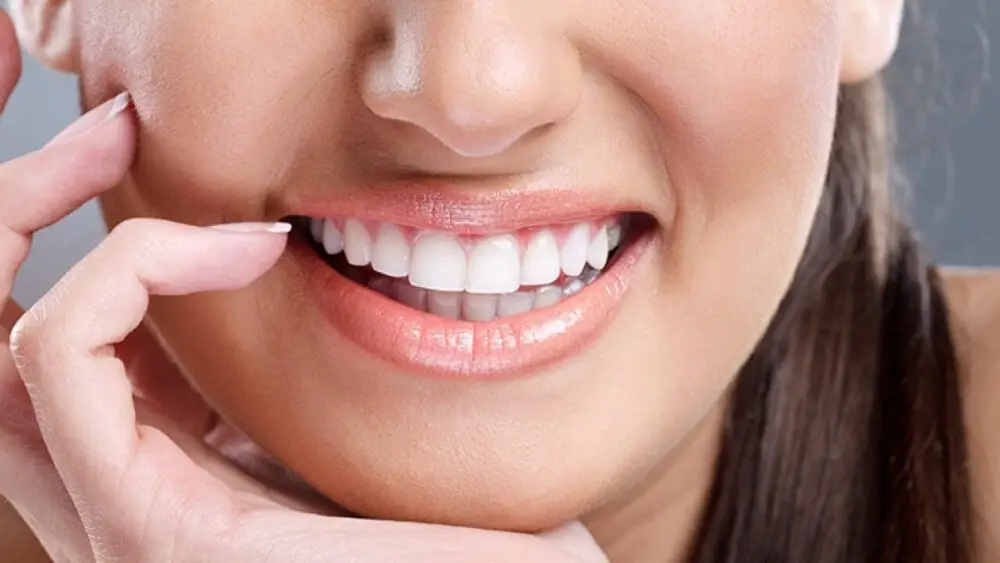
Back teeth pain from biting can be a frustrating and uncomfortable experience. The pain can be caused by a variety of factors, such as a cracked or chipped tooth, grinding or clenching of the teeth, or an infection. Prevention of back teeth pain from biting involves taking preventative measures to protect your teeth and maintaining good oral hygiene practices. Firstly, it is important to wear a mouthguard or nightguard if you have a history of grinding or clenching your teeth. This can help to distribute the pressure more evenly across your teeth and prevent damage to your enamel. Additionally, avoiding hard or chewy foods, such as ice or sticky candy, can help to prevent damage to your teeth and reduce the risk of pain. Another key preventative measure is to maintain good oral hygiene practices, such as brushing and flossing regularly. This can help to remove plaque and bacteria from your teeth and gums, reducing the risk of dental infections that can cause pain. Regular dental check-ups and cleanings are also important to ensure that any potential issues are caught early and treated before they become more serious. By taking these preventative measures, you can help to reduce your risk of back teeth pain from biting and maintain a healthy, pain-free smile.
Regular dental checkups and cleanings are essential for maintaining good oral health and preventing back teeth pain. These routine visits allow dentists to detect any potential issues early on and address them before they become more serious. During a cleaning, the dentist or hygienist will remove any built-up plaque and tartar, which can cause tooth decay and gum disease if left untreated. They will also check for signs of tooth damage or decay, and may recommend further treatment if necessary. By scheduling regular checkups and cleanings, patients can ensure that their teeth and gums are healthy and pain-free.
Proper dental hygiene practices are essential for maintaining healthy teeth and gums. It is advised to brush your teeth twice a day with fluoride toothpaste and floss at least once a day to remove plaque and food particles that can cause decay and gum disease. Additionally, using mouthwash can help kill bacteria and freshen your breath. To prevent back teeth pain, it is important to not only focus on brushing the front teeth but also the molars and back of the mouth. Regular dental check-ups and cleanings can also detect any issues early on and prevent further damage. By following these practices, you can ensure a healthy and pain-free smile.
When it comes to maintaining good dental health, it’s important to avoid hard or sticky foods that can damage teeth. These types of foods can cause significant damage to the enamel and structure of teeth, leading to pain and discomfort. Hard foods such as ice, nuts, and hard candy can cause chips and cracks in teeth, while sticky foods such as caramel and gummy candy can get stuck in between teeth and cause decay. By avoiding these types of foods and sticking to a healthy diet of fruits, vegetables, and lean proteins, you can keep your teeth healthy and pain-free. Additionally, regular dental check-ups and cleanings can help catch any issues early on and prevent further damage.
Back teeth pain from biting down can have various causes, including tooth decay, tooth fractures, bruxism, or temporomandibular joint disorder (TMD). Tooth decay and fractures can be caused by poor dental hygiene, trauma to the mouth, or excessive wear and tear. Bruxism, also known as teeth grinding or clenching, can cause pain and damage to the teeth and may be due to stress or an abnormal bite. TMD can result from a variety of factors, including trauma, arthritis, or misaligned teeth. Treatment options for back teeth pain include fillings or crowns for decay or fractures, mouthguards for bruxism, and lifestyle changes or surgery for TMD. It is essential to consult with a dentist or doctor to determine the underlying cause of the pain and to develop an appropriate treatment plan to alleviate it.
It is crucial to seek dental care for persistent pain or discomfort in the back teeth as it can be an indication of a more severe underlying dental issue. Ignoring such pain may lead to further complications, which can result in more extensive and expensive dental procedures. Regular dental check-ups can help diagnose and treat any issues before they worsen, preventing the need for more invasive treatments. Neglecting dental pain may also lead to a decline in overall oral health, affecting one’s ability to eat, speak, and even smile. Therefore, it is essential to take dental pain seriously and seek professional care promptly to prevent further complications and ensure optimal oral health.
Conclusion
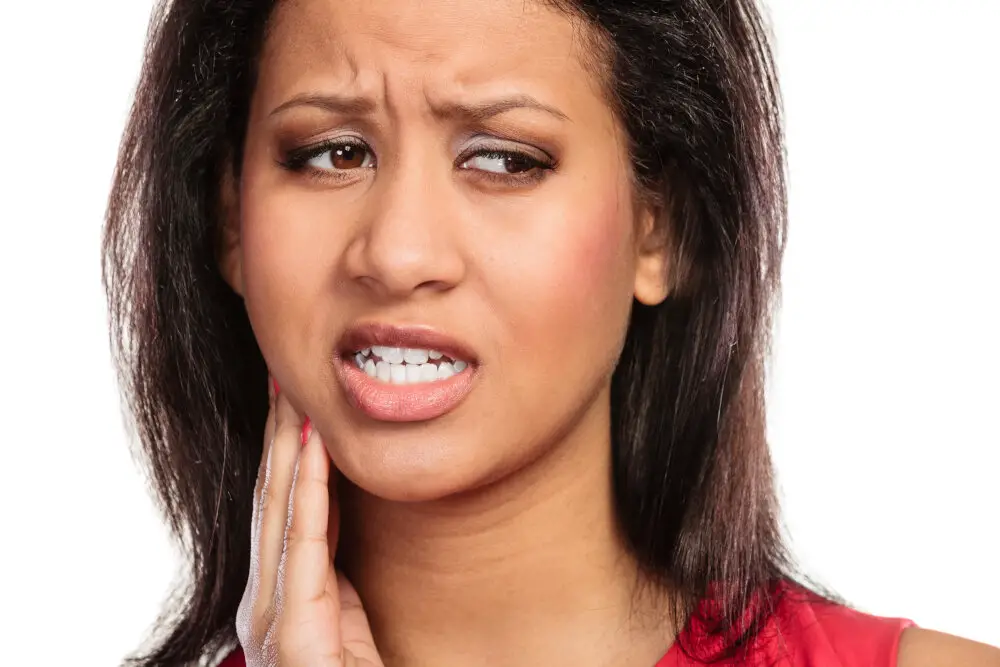
In conclusion, understanding why biting down causes back teeth pain is essential in finding effective solutions to alleviate the discomfort. From dental injuries to dental diseases, various factors can contribute to this type of pain. Therefore, it is crucial to seek professional dental care to identify the root cause of the issue and prevent further damage. Maintaining good oral hygiene habits, avoiding hard and crunchy foods, and wearing mouthguards during sports activities are some solutions that can help prevent back teeth pain. With proper care and attention, one can maintain healthy teeth and gums and enjoy a pain-free bite.



